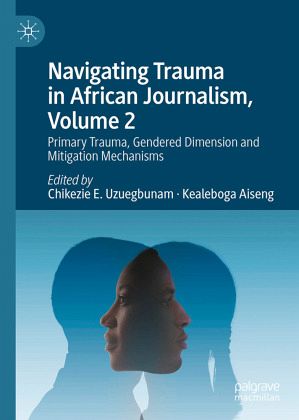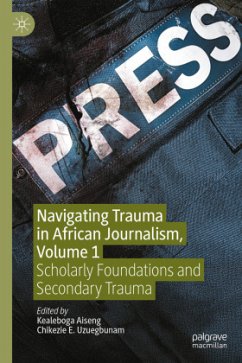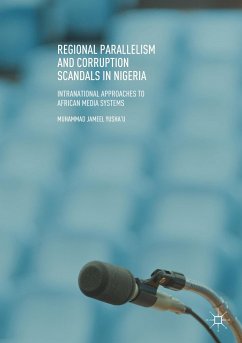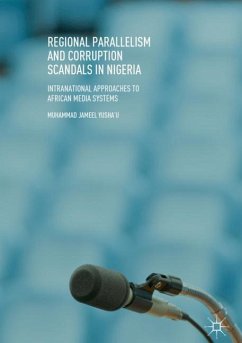
Navigating Trauma in African Journalism, Volume 2
Primary Trauma, Gendered Dimension and Mitigation Mechanisms
Herausgegeben: Uzuegbunam, Chikezie E.; Aiseng, Kealeboga

PAYBACK Punkte
60 °P sammeln!
This second volume focuses on primary trauma experienced by journalists, with a particular focus on the gendered dimensions, as shared by female journalists and researchers. By focusing on female journalists firsthand encounters, the book explores the complex psychological, emotional, and professional challenges they face both inside and outside the newsroom. The chapters deal with specific issues relating to sexual harassment, online threats, risks and vulnerabilities, and physical and psychological violence experienced by journalists in various sub-Saharan African countries. In addition, the...
This second volume focuses on primary trauma experienced by journalists, with a particular focus on the gendered dimensions, as shared by female journalists and researchers. By focusing on female journalists firsthand encounters, the book explores the complex psychological, emotional, and professional challenges they face both inside and outside the newsroom. The chapters deal with specific issues relating to sexual harassment, online threats, risks and vulnerabilities, and physical and psychological violence experienced by journalists in various sub-Saharan African countries. In addition, the book explores the coping mechanisms employed by journalists in the field; thereby contributing to ongoing discussion on how to support media professionals navigating challenging newsrooms and journalistic roles in Africa and beyond.












